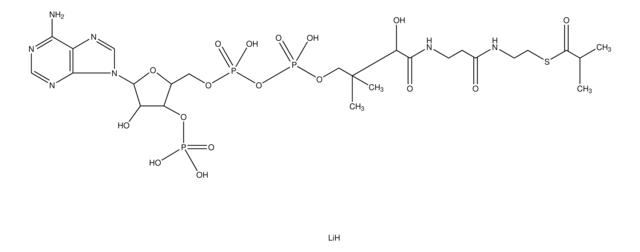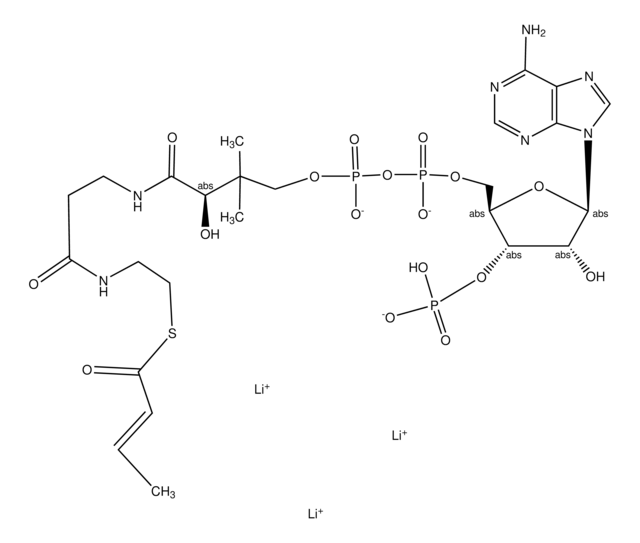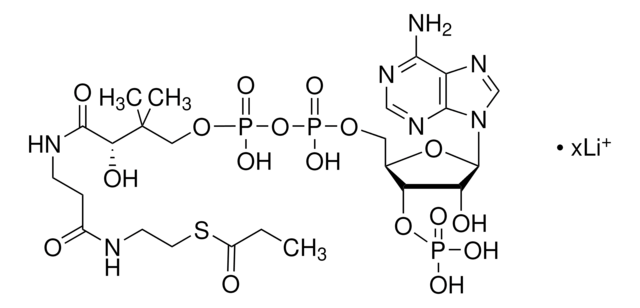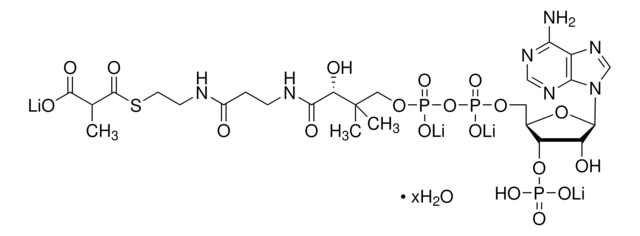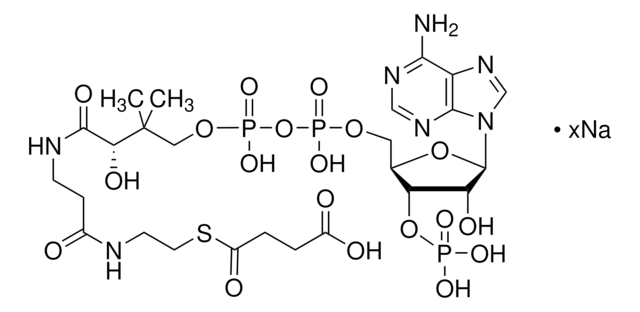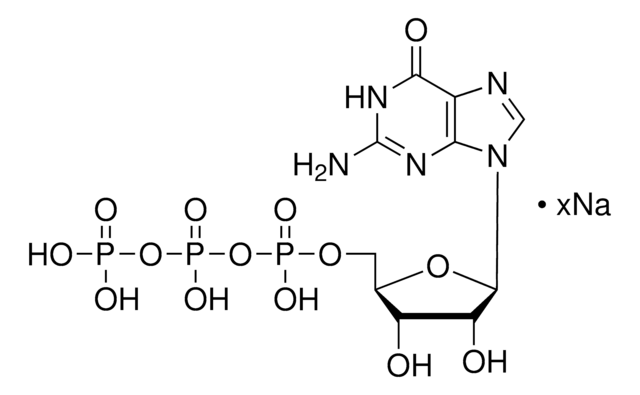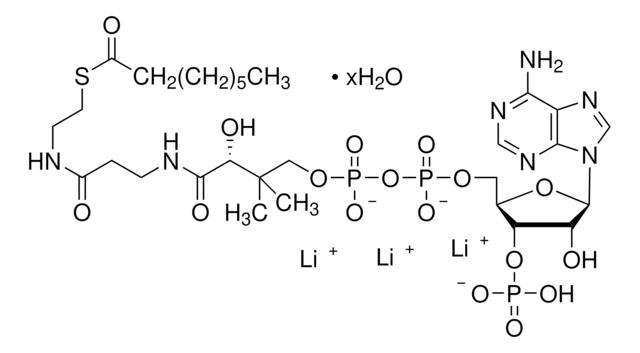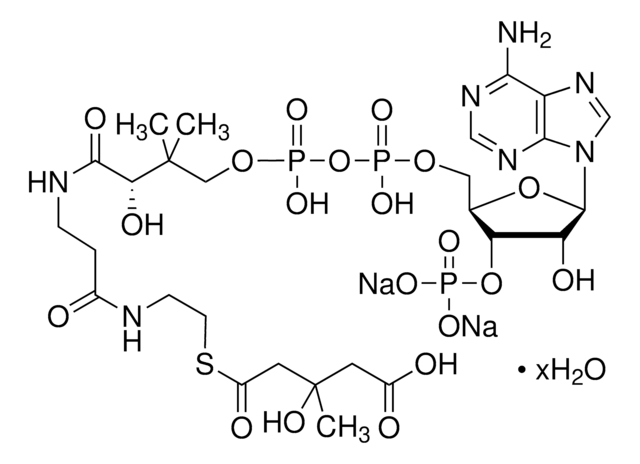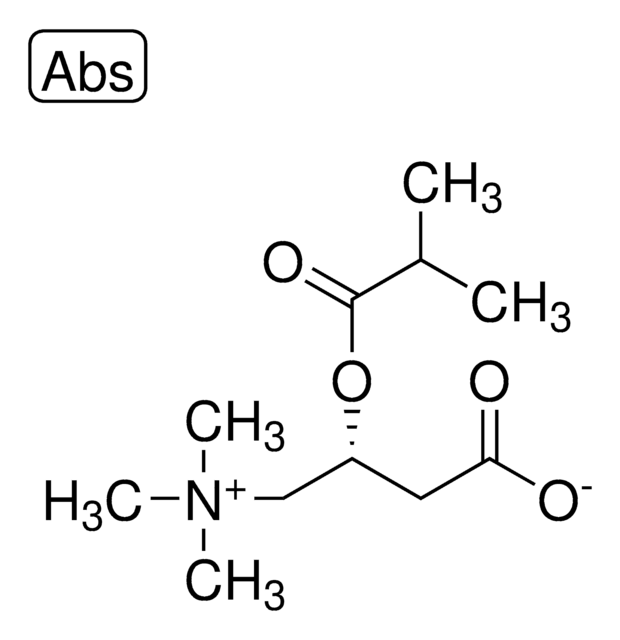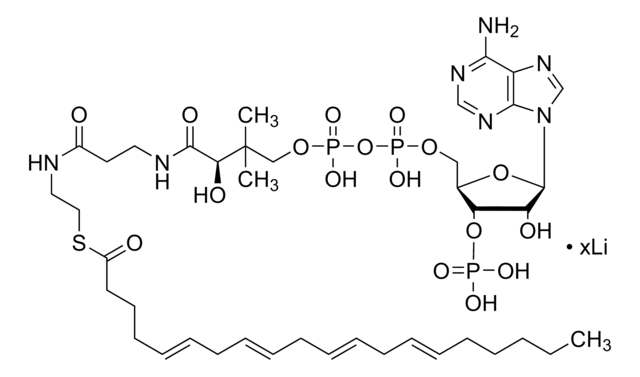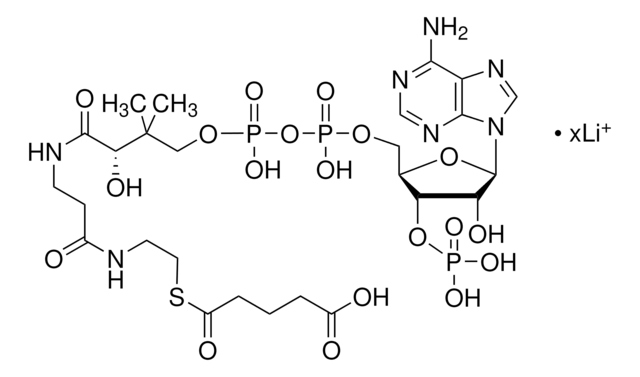I9381
Isovaleryl coenzyme A lithium salt hydrate
≥90%
Synonym(s):
IV-CoA
About This Item
Recommended Products
assay
≥90%
storage temp.
−20°C
SMILES string
[Li+].[Li+].[Li+].[H]O[H].CC(C)CC(=O)SCCNC(=O)CCNC(=O)[C@H](O)C(C)(C)COP([O-])(=O)OP([O-])(=O)OC[C@H]1O[C@H]([C@H](O)[C@@H]1OP(O)([O-])=O)n2cnc3c(N)ncnc23
InChI
1S/C26H44N7O17P3S.3Li.H2O/c1-14(2)9-17(35)54-8-7-28-16(34)5-6-29-24(38)21(37)26(3,4)11-47-53(44,45)50-52(42,43)46-10-15-20(49-51(39,40)41)19(36)25(48-15)33-13-32-18-22(27)30-12-31-23(18)33;;;;/h12-15,19-21,25,36-37H,5-11H2,1-4H3,(H,28,34)(H,29,38)(H,42,43)(H,44,45)(H2,27,30,31)(H2,39,40,41);;;;1H2/q;3*+1;/p-3/t15-,19-,20-,21+,25-;;;;/m1..../s1
InChI key
RABPIYFVNICBEC-YVBWDKSKSA-K
Related Categories
General description
Application
- as substrate for β-Hydroxy-β-methylbutyric acid synthesis in cell-free extracts from G. reessii
- in high-performance liquid chromatography (HPLC) for the characterization of IV-CoA from lymphocytes
- as a substrate in isovaleryl-CoA dehydrogenase assay
Storage Class
11 - Combustible Solids
wgk_germany
WGK 3
flash_point_f
Not applicable
flash_point_c
Not applicable
ppe
Eyeshields, Gloves, type N95 (US)
Choose from one of the most recent versions:
Already Own This Product?
Find documentation for the products that you have recently purchased in the Document Library.
Customers Also Viewed
Our team of scientists has experience in all areas of research including Life Science, Material Science, Chemical Synthesis, Chromatography, Analytical and many others.
Contact Technical Service